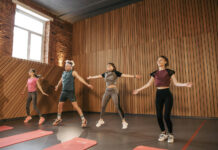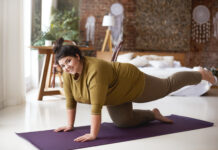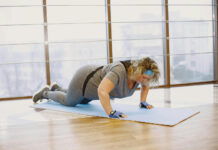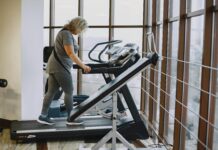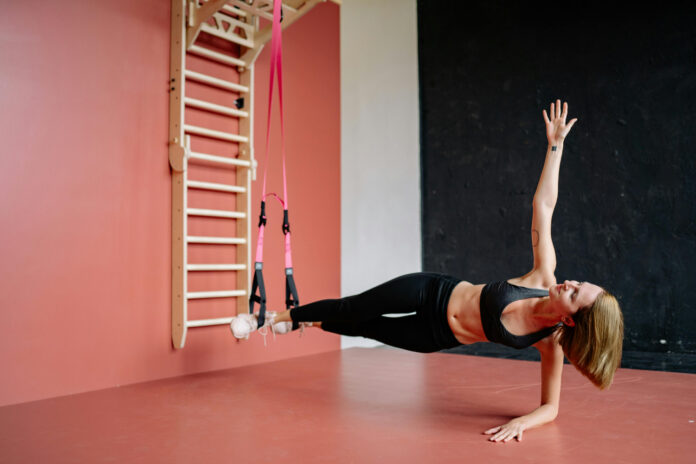Introduction: Why Core Strength Matters
When it comes to fitness, building a strong core is non-negotiable. Your core is more than just six-pack abs—it’s the powerhouse behind nearly every movement your body performs. From bending to tie your shoes to maintaining good posture, a strong core enhances balance, stability, and strength.
Plus, a healthy core reduces the risk of injuries and improves athletic performance, whether running, lifting, or chasing after your kids.
Understanding the Core: More Than Just Abs
Most people think the core is just about getting flat abs, but it’s much more! Your core includes:

- Rectus abdominis (the “six-pack”)
- Transverse abdominis (deep abs)
- Obliques (sides of your abs)
- Lower back muscles
- Pelvic floor
- Glutes (surprisingly, your butt is a key part of your core!)
When all these muscles work together, your body becomes a powerhouse of strength and stability.
How to Engage Your Core Properly
Before jumping into exercises, you need to know how to “brace” your core:

- Picture yourself bracing for a punch to the stomach.
- Tighten your stomach without sucking in or pushing out.
- Maintain this gentle tension during exercises.
Engaging your core correctly protects your spine and maximizes results.
Benefits of Strong Core Muscles
Building a strong core brings a wide range of benefits:

✅ Better posture
✅ Reduced back pain
✅ Enhanced athletic performance
✅ Easier daily activities
✅ Injury prevention
Honestly, a powerful core sets the foundation for a powerful life.
Essential Tips Before You Start Core Training
Before you dive into these workouts, keep these points in mind:
- Form is King: Quality over quantity.
- Consistency Matters: Train core muscles 3–4 times a week.
- Progress Slowly: Start with beginner moves and build up.
- Breathe Properly: Exhale during exertion.
Now, let’s warm up that midsection!
Warm-Up Exercises to Activate the Core
Start with a quick 5-minute warm-up:
| Exercise | Duration |
| Cat-Cow Stretch | 1 min |
| Standing Side Bends | 1 min |
| Arm Circles | 1 min |
| High Knees | 1 min |
| Plank to Downward Dog | 1 min |
These moves fire up your core muscles and prepare your body for the real work ahead.
Best Core Exercises for Beginners
Starting your fitness journey? These exercises will set a strong foundation.
Plank
- How to Do It: Position yourself like a push-up, but lower down onto your forearms.
- Focus: Keep your body in a straight line.
- Tip: Don’t let your hips sag!
Dead Bug
- How to Do: Lie flat on your back with your arms and legs raised. Slowly lower the opposite arm and leg, then bring them back to the starting position.
- Focus: Keep your core tight.
Bird-Dog
- How to Do: Extend the opposite arm and leg on all fours.
- Focus: Stability and balance.
Intermediate Core Exercises
Ready to step it up? These moves challenge stability and strength.
Russian Twists
- How to Do: Sit with knees bent, lean back, and twist your torso side to side.
- Tip: Add a weight for more burn.
Mountain Climbers
- How to Do: Start in a plank. Drive knees towards chest quickly.
- Focus: Keep your core engaged to avoid bouncing hips.
Reverse Crunches
- How to Do: Lie back, knees bent. Lift your hips off the ground.
- Pro Tip: Go slow for maximum burn.
Advanced Core Exercises
For fitness warriors, these exercises are next-level.
Hanging Leg Raises
- How to Do: Hang from a bar and lift legs straight up.
- Challenge: Avoid swinging.
Ab Rollouts
- How to Do: Use an ab wheel. Roll forward slowly, then back.
- Warning: Keep your core engaged to protect your lower back.
Dragon Flags
- How to Do: Lie on a bench, grip the bench behind your head. Lift your whole body vertically and slowly lower.
Legendary exercise that builds insane core strength!
Bodyweight Core Exercises (No Equipment Needed)
Short on equipment? No problem!
| Exercise | Notes |
| Side Plank | Targets obliques |
| V-Ups | Combo of crunch and leg raise |
| Flutter Kicks | Burns lower abs |
Bodyweight training proves you don’t need fancy machines to get shredded.
Core Exercises Using Equipment (Stability Ball, Weights)
If you have a gym ball or dumbbells, you can diversify:

- Stability Ball Plank: Forces more core engagement.
- Weighted Sit-Ups: Adds resistance.
- Cable Woodchoppers: Great for obliques.
Check out this beginner’s guide to using gym balls for extra ideas.
Creating a Core Workout Routine for All Fitness Levels
Here’s a sample:
| Day | Exercise |
| Monday | Beginner routine |
| Wednesday | Intermediate circuit |
| Friday | Advanced challenge |
Mix and match based on your fitness goals!
Common Mistakes to Avoid During Core Workouts
🚫 Overarching your back
🚫 Holding your breath
🚫 Rushing through reps
🚫 Only focusing on abs
Remember: Train smart, not just hard.
How Often Should You Train Your Core?
Experts recommend 3–4 sessions per week. Your core needs recovery, too, so don’t train it daily unless you alternate intensity.
Integrating Core Workouts Into Full-Body Training
Combine core moves with squats, deadlifts, and push-ups. A strong core enhances your full-body lifts and maximizes results.
FAQs About Core Exercises
1. How much time does it take to build core strength?
With consistent effort, you can notice improvements in about 4–8 weeks.
2. Can core exercises help with back pain?
Absolutely! Strengthening the core often reduces lower back pain by supporting the spine.
3. Should I do core exercises every day?
Not necessary. 3–4 times per week is ideal to allow for muscle recovery.
4. Do I need equipment for core exercises?
Nope! Many effective exercises, like planks and bird-dogs, require zero equipment.
5. Are crunches bad for the spine?
If done improperly, yes. Focus on controlled movements and proper breathing.
6. When is the ideal time to work on your core muscles?
You can do core workouts after strength training or on active rest days.
Conclusion: Build a Strong Foundation for Lifelong Fitness
Building a powerful core doesn’t just sculpt your abs—it improves your whole life. From better posture to fewer injuries and a boost in athletic performance, core training is a non-negotiable part of every fitness journey.
Start simple, stay consistent, and embrace the progress. Your future self will thank you!


